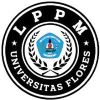TECHNO PSYCHOLOGY IN DISTANCE LEARNING DURING THE COVID-19 PANDEMIC
DOI:
https://doi.org/10.37478/jpm.v3i4.2301Abstract
The purpose of this article is to describe the results of a psychological review analysis of shifting values in learning using a distance learning system. This article will review the learning process during the COVID-19 pandemic. Some students carry out learning with a feeling of anxiety, because of the fear of contracting Covid-19, which has an impact on the psychology of learning. Unstable motivation, because there is no offline interaction so that the learning process is carried out depending on one's own initiative. Discipline is difficult to implement, because opportunities for many disturbances that cause learning focus and low emotional control when encountering problems with damage and difficulty using technology media. Of these various problems, the need for technology integration as a learning solution is the right step. In uncovering these learning phenomena, this article uses descriptive qualitative research methods. The data collection techniques used were virtual observation techniques and online interviews, then the data were analyzed using the Mils and Huberman method. The results of this study, the authors try to offer a new alternative with the term Techno-psychology as an integrated product between the use of technology in distance learning and psychology on motivation, self-discipline, and emotion.
Downloads
Keywords:
Distance Learning, Techno-Psychology, E-LearningReferences
Ahmed, F., Zviedrite, N., & Uzicanin, A. (2018). Effectiveness of workplace social distancing measures in reducing influenza transmission: A systematic review. BMC Public Health, 18(1), 1–13. https://doi.org/10.1186/s12889-018-5446-1
Asare, A. S., Mensah, F. O., Price, L., & Gyamera, A. (2015). Managing Schools Discipline- The students and teachers perspectives. British Journal Of Psychology Reseacrh, 3(2), 1–111. https://doi.org/10.1017/CBO9781107415324.004
Azarian, A., Farokhzadian, A., & Habidi, E. (2016). Relationship between psychological Hardiness and Emotional Control Index: A Communicative Approach. International Journal of Medical Research & Health Sciences, 5(5), 216–221. https://www.ijmrhs.com
Cox, P. J. (1990). Research and development - or research design and development? International Journal of Project Management, 8(3), 144–150. https://doi.org/10.1016/0263-7863(90)90015-4
Cullum, J., O’Grady, M., & Tennen, H. (2011). Affiliation Goals and Health Behaviors. Social Personal Psychology Compass, 5(10), 694–705. Retrieved from https://www.ncbi.nlm.nih.gov/pmc/articles/PMC3225964/
Cushman, F. (2018). Rationalization is Rational. https://doi.org/https://doi.org/10.31234/osf.io/edrfm
Fahrurrazi, & Novriansyah, B. (2018). The Effect Of Discipline , Motivation And Teacher ’ s Perception Upon The Leadership Of Principal Towards Teacher Performance Of Public Secondary Madarsa In Indonesia. IOSR Journal Of Humanities and Social Science (IOSR-JHSS), 23(11), 65–71. https://doi.org/10.9790/0837-2311026571
Flanagan, G. (2000). Teaching and learning at a distance - Foundations of distance education. In Internet and Higher Education (Vol. 3). https://doi.org/10.1016/S1096-7516(01)00034-3
Freud, S. (2015). Freud’s Idea of Sublimation. Retrieved from https://www.lutterworth.com/pub/gift of sublimation ch1.pdf
Garmezy, N. (1985). Stress-resistant children: The search for protective factors. In: J.E. Stevenson (Ed.) Recent Research in Developmental Psychopathology. Oxford: Pergamon Press. https://doi.org/10.1016/S0005-7894(86)80091-0
Ghazvini, S. D., Khajehpour, M., Rahmani, M., & Memari, E. (2010). Sublimation, as a technique for treatment. Procedia - Social and Behavioral Sciences, 5(2), 1811–1817. https://doi.org/10.1016/j.sbspro.2010.07.369
Grover, S., & Avasthi, A. (2018). Clinical Practice Guidelines for Management of Delirium in Elderly. Indian J Psychiatry, 60(3), 329–340. Retrieved from https://www.ncbi.nlm.nih.gov/pmc/articles/PMC5840908/
Han, J., & Yin, H. (2016). Teacher motivation: Definition, research development and implications for teachers. Cogent Education, 3(1), 1–18. https://doi.org/10.1080/2331186X.2016.1217819
Henricks, T. (2016). Reason and Rationalization: A Theory of Modern Play. American Journal of Play, 8(3), 287–324. https://files.eric.ed.gov/fulltext/EJ1108792.pdf
Honeyman, M; Miller, G. (1993). Agriculture distance education: A valid alternative for higher education? Proceedings of the 20th Annual National Agricultural Education Research Meeting. https://files.eric.ed.gov/fulltext/ED366794.pdf#page=80
Iliya, A., & Ifeoma, L. G. (2015). Assessment of Teacher Motivation Approaches in the Less Developed Countries. Journal of Education and Practice, 6(22), 10-17. https://eric.ed.gov/?id=EJ1079453
Jeronimus, B. F., & Laceulle, O. M. (2017). Frustration. In Encyclopedia of Personality and Individual Differences (pp. 1–5). https://doi.org/10.1007/978-3-319-28099-8
Kaplan, A. M., & Haenlein, M. (2016). Higher education and the digital revolution: About MOOCs, SPOCs, social media, and the Cookie Monster". Business Horizons, 59(4). https://doi.org/10.1016/j.bushor.2016.03.008
Ken Peffers, Tuure Tuunanen, Marcus A. Rothenberger, & Samir Chatterjee. (2007). A Design Science Research Methodology for Information Systems Research. Journal of Management Information Systems, 24(3), 45–77. https://doi.org/10.2753/MIS0742-1222240302
Liu, Z., Baker, R. S. J. D., Pataranutaporn, V., & Ocumpaugh, J. (2013). Sequences of frustration and confusion, and learning. Proceedings of the 6th International Conference on Educational Data Mining, EDM 2013. https://educationaldatamining.org/EDM2013/proceedings/paper_34.pdf
Ndiku Makewa, L., Gitonga, D., Ngussa, B., Njoroge, S., & Kuboja, J. (2014). Frustration Factor in Group Collaborative Learning Experiences. American Journal of Educational Research, 2(11A), 16–22. https://doi.org/10.12691/education-2-11a-3
Ozen, S. O. (2017). The effect of motivation on student achievement. The Factors Effecting Student Achievement: Meta-Analysis of Empirical Studies, 35–56. https://doi.org/10.1007/978-3-319-56083-0_3
Pekrun, R. (2014). Emotions and Learning. In Unesco (24th ed.). https://doi.org/10.1080/00344087.2019.1669866
Setiawan, A. R., & Ilmiyah, S. (2020). Students’ Worksheet for Distance Learning Based on Scientific Literacy in the Topic Coronavirus Disease 2019 (COVID-19). EdArXiv, 2019(April), 1–9. https://doi.org/DOI: https://doi.org/10.35542/osf.io/h4632
Stanley, E. O. (2014). Discipline and Academic Performance (A Study of Selected secondary Schools in Lagos, Nigeria). International Journal of Academic Research in Progressive Education and Development, 3(1). https://doi.org/10.6007/ijarped/v3-i1/758
Stern, J. (2018). Introduction to Online Teaching and Learning. International Journal of Science Education, (3), 1–10. https://doi.org/10.1002/9781118784235.eeltv06b
Tavares, L. A. T., & Hashimoto, F. (2016). Sublimation as a paradigm of the psyche constitution: Metapsychology and theoretical-clinical developments. Agora (Brazil), 19(2), 295–310. https://doi.org/10.1590/S1516-14982016002010
Thom, R. P., Levy-Carrick, N. C., Bui, M., & Silbersweig, D. (2019). Delirium. The American Journal Of Psychiatry, 176(10). https://doi.org/https://doi.org/10.1176/appi.ajp.2018.18070893
Thompson, C. (2017). Improving Hardiness in Elite Rugby Players (Victoria university Australia). Retrieved from http://vuir.vu.edu.au/34210/1/THOMPSON Campbell - thesis_nosignatures.pdf
Ulya, A., & Ahmad, N. A. (2018). Enhancing Efficacy of Special Education Early Teachers: The External and Psychological Resilience Factors Perspectives. International Journal of Academic Research in Business and Social Sciences, 8(7), 737–749. https://doi.org/10.6007/ijarbss/v8-i7/4416
Zachos, D. T., Delaveridou, A., & Gkontzou, A. (2016). Teachers and School “Discipline” in Greece: A Case Study. European Journal of Social Sciences Education and Research, 3(3), 8–19. https://doi.org/10.26417/ejser.v7i1.p8-19
Downloads
Published
How to Cite
Issue
Section
License
Copyright (c) 2022 Failasuf Fadli, Mochamad Iskarim

This work is licensed under a Creative Commons Attribution-ShareAlike 4.0 International License.













